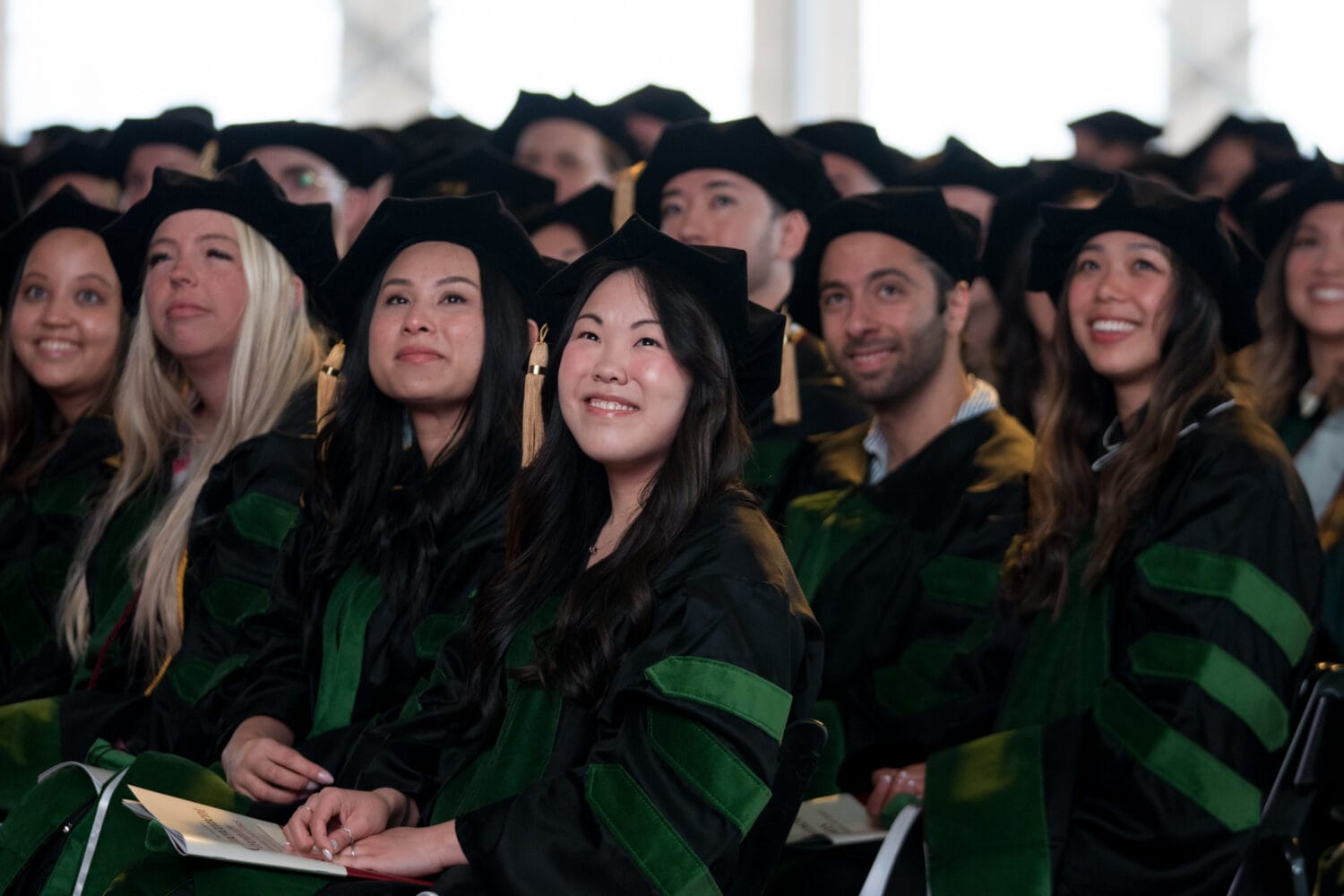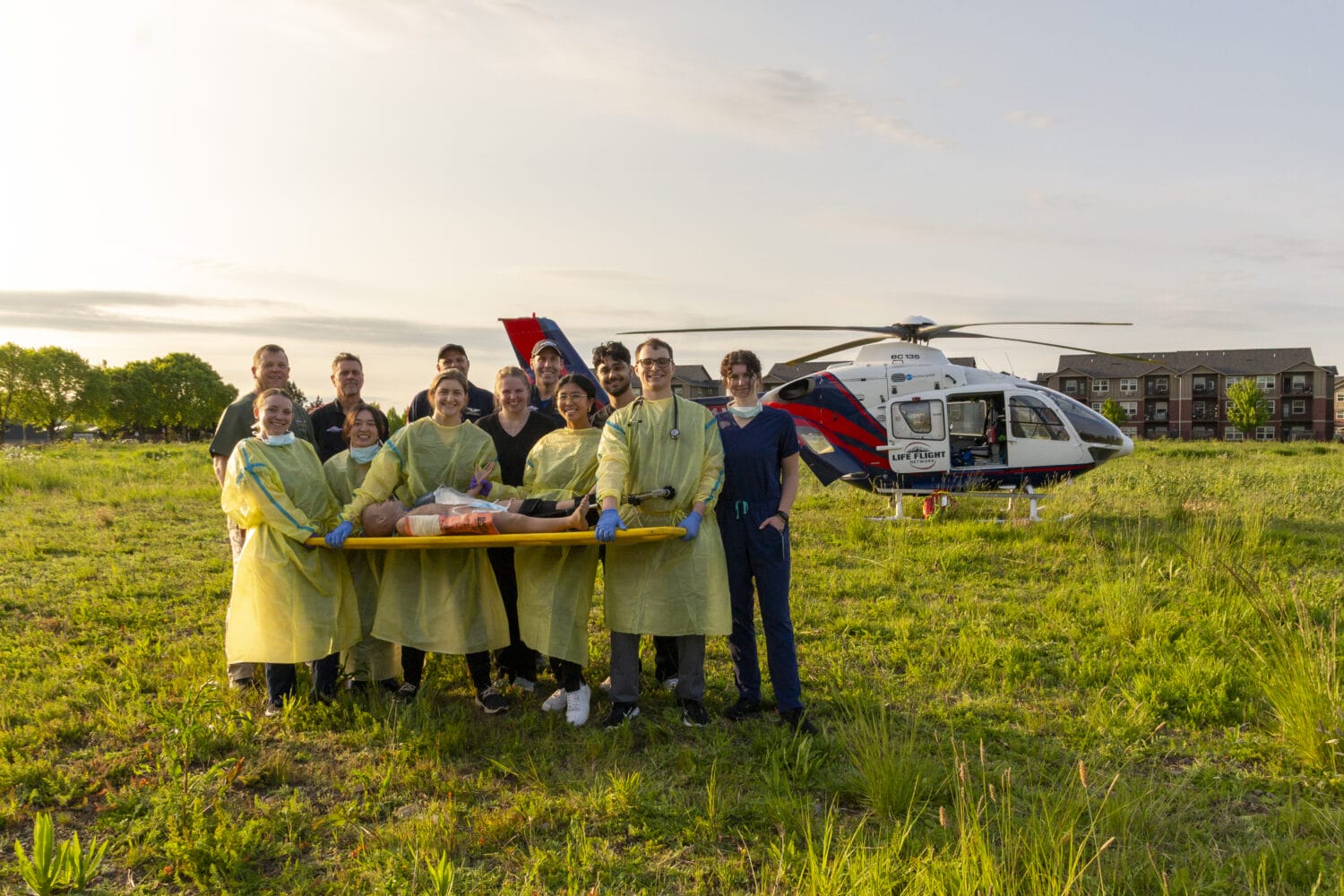World healer
Damas Dukundane survived the Rwandan genocide of 1994, but some of his family members did not. Now he wants to heal his country by going into family medicine.
He is two years from graduating from the National University of Rwanda as a physician, and he recently spent a month at Western University of Health Sciences as an exchange student through the International Federation of Medical Students’ Associations.
“After what happened in Rwanda, the whole country is trying to move on,” Dukundane recently told a classroom full of students, staff and faculty.
One million lives were lost in only 100 days in 1994, the fastest and most vicious genocide yet recorded in human history, according to Rwanda’s government Web site. Now Rwanda has many challenges, mainly poverty and lack of education, said Dukundane, 24. There is one physician for every 53,370 people in Rwanda, he said. People cannot afford medical care and infrastructure is lacking.
Many doctors in Rwanda leave their villages to study in the city and stay there, he said.
“I think that’s why I want to go back to the village and help people,” he said. “Sometimes I think people in the village need more health care. They need people to talk to them.”
Entering family medicine is a way to learn more about a person and give advice accordingly, Dukundane said.
“It’s a way to reach many people,” he said. “It’s a way to change and save many lives.”
He was interested in coming here because of the reputation of America, Dukundane said.
He had also befriended Americans and wanted to see their country.
During his visit he saw snow for the first time. He also visited Venice Beach and Hollywood and WesternU students took him to a nightclub.
Students weren’t the only ones who made Dukundane feel at home. The Rotary Club of Pomona sponsored his airfare. Many faculty, staff and students in the College of Veterinary Medicine embraced him and supported him.
Gini Barrett, BS, College of Veterinary Medicine associate professor, donated a laptop. Helping one person is a drop in the bucket when you look at the problems in the world, but reaching out to others is everyone’s duty, she said.
“The fact that he was here made it personal and real for all of us,” Barrett said. “He served all of us a reminder these problems are truly part of the human condition, and it’s our collective duty to respond. It’s much more powerful when it’s personal than when it’s statistical and remote.”
Dukundane is going to make a positive contribution to so many people, Barrett said.
“We should recognize and honor the people who are doing good things, and overcoming great odds to do them,” she said.
Malika Kachani, DVM, PhD, College of Veterinary Medicine professor, welcomed Dukundane into her home for a month. On his second day with her, she asked if he wanted to use her phone to call someone. He asked who he would call and she replied, “Someone who is concerned about you.” He replied, “And who would be concerned?”
He also said he wished his father was with him, Kachani said. She told this story to the classroom audience.
“I just would like to remind you to have friends and to have a family is a blessing,” she said. “Now Damas has friends and family.”
Dukundane said he now feels that he is not alone. He appreciates the generous donations, but even more valuable is the friendships he made with people who are willing to help.
“Most important is this support, this trust people put in you,” he said. “This feeling I’m not alone. There are other people who care about my cause.”



